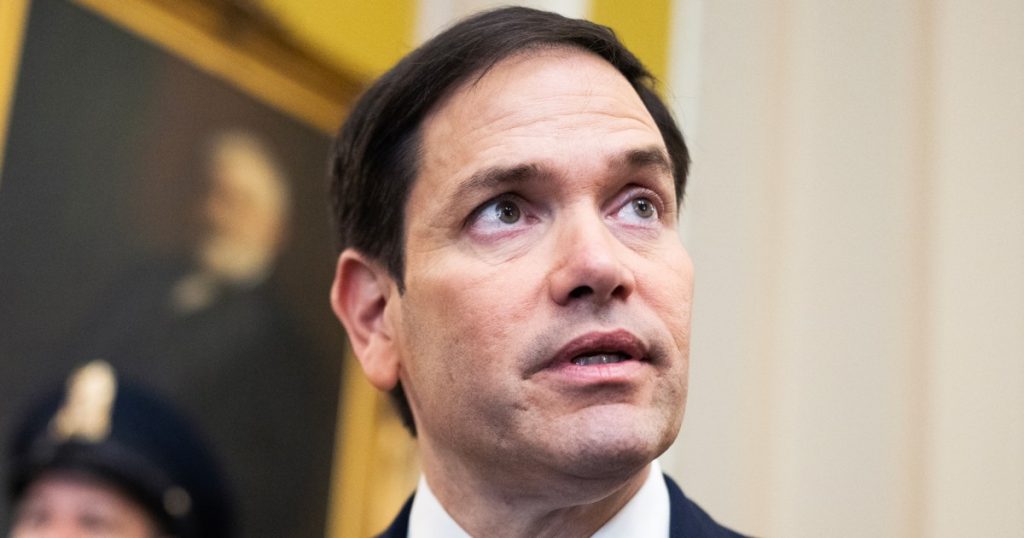Florida GOP Sen. Marco Rubio, a potential vice presidential pick for former President Donald Trump, refused to say whether he would accept the results of the 2024 presidential election during an interview on NBC News’ “Meet the Press.” Rubio blamed Democrats for sowing doubts about the election process, claiming that they have opposed every Republican victory since 2000. He also referenced Democrats saying they won’t certify the 2024 election results because Trump is considered an insurrectionist and ineligible for office, shifting responsibility to them.
While Rubio voted to certify the presidential election for then-President-elect Joe Biden, he would not commit to accepting the results of the upcoming election if Trump wins. This contrasts with Democratic candidates, including Hillary Clinton in 2016, who accepted the election outcomes. Trump himself stated in May that he would only accept the results of the election in Wisconsin if they were honest, further underscoring the uncertainty surrounding the democratic process among his supporters.
High-profile Trump allies, including GOP Sen. Tim Scott, have also evaded questions about accepting the results of the upcoming presidential election during media interviews. Scott commented that he believes the 47th president of the United States will be Donald Trump, hinting at ongoing doubts about the legitimacy of the electoral system. The refusal of Rubio and other allies to commit to accepting election results raises concerns about the future of democracy and the potential for unrest if results are contested.
Rubio’s attendance at a closed-door donor retreat with Trump at Mar-a-Lago, where the former president mentioned he was being considered for the vice presidential role, has fueled speculations about his potential nomination. Rubio did not deny the possibility of accepting the role if offered, stating that serving in the second highest office is an incredible opportunity to serve the country. However, he expressed humility and the need for thoughtful consideration if such an opportunity arose, acknowledging that his decisions should align with other aspects of his life at that moment.
The discourse around accepting election results and potential leadership roles in the GOP underlines the deep polarization and uncertainty within the party. Trump’s continued influence and the reluctance of key figures to commit to democratic principles raise concerns about the future of political stability and peaceful transitions of power in the U.S. As the 2024 presidential election approaches, the willingness of leaders like Rubio and Scott to uphold democratic norms and respect electoral outcomes will be closely monitored, shaping the course of American democracy in the years to come.
In the midst of ongoing debates and controversies surrounding election integrity, Rubio’s stance on accepting election results and potential vice presidential consideration reflects larger tensions within the GOP and the broader political landscape. While Rubio positions himself as a potential candidate for the vice presidential role, his reluctance to definitively commit to accepting election outcomes adds a layer of uncertainty and skepticism to the democratic process. As the nation prepares for the next presidential election, questions about the integrity of the electoral system and the allegiance of political leaders to democratic values remain at the forefront of public discourse.













